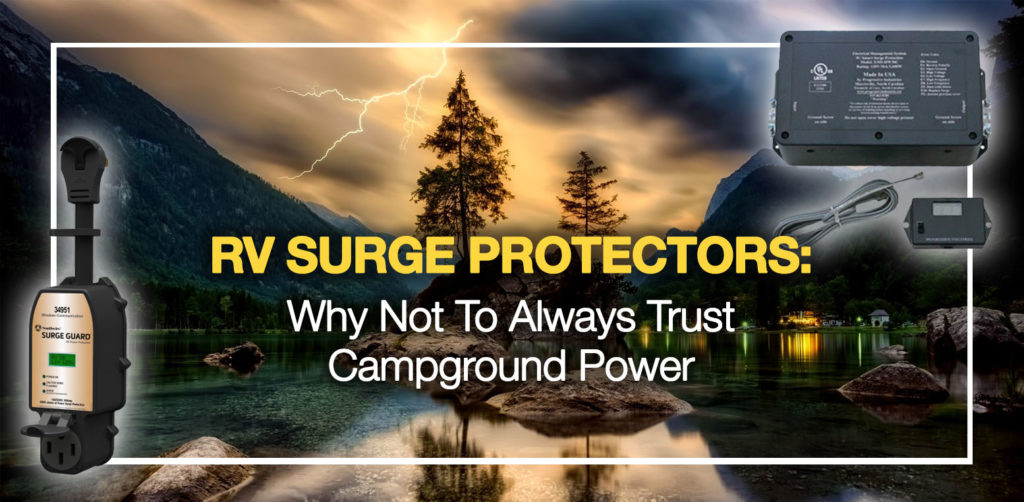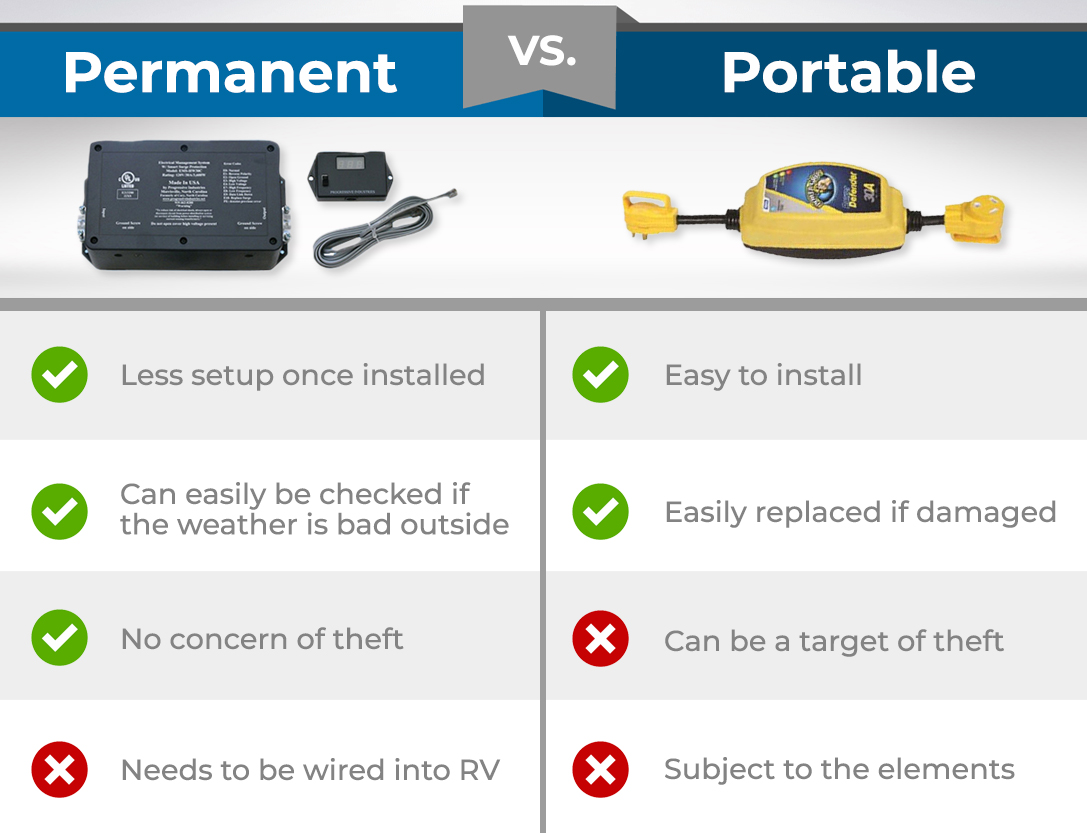RV Surge Protectors
Don’t always trust campground power.
In fact, you might be amazed at how often the electrical service at campgrounds is poor, if not even dangerous. Most often the problem is low voltage, where the normal 120 volt or 240 volt service sags because many campers are using their air conditioners simultaneously.
The electronics in your RV are meant for normal voltage, plus or minus 10 percent. This means that anywhere from 108 volts to 132 volts can be tolerated by the refrigerator, air conditioner, microwave, and power converter (the power converter changes the 120 volt AC power into 12 volt DC power to charge the battery and support all the other 12 volt accessories like the furnace, water pump and lights).
In reality, a hot day in a campground can lead to brief “brown outs,” where the power dips below 105 volts — and that’s bad news for your RV. If your air conditioner tries to start up under those conditions it will probably burn out, and that can be a costly replacement you don’t want to incur (let alone waiting until you can have the repair done).
What Surge Protector is best for my RV?
A common question amongst RVers is what is a surge protector, and why do I need one? While a basic surge protector is better than nothing, it is highly recommended to use an electrical management system (EMS). The EMS offers far superior protection for the electronics in your RV, potentially saving you thousands in repairs.
Potential Electrical Problems
There are many factors that can cause damage to your electrical system or appliances. Some campgrounds may have mis-wired and worn out pedestals or surges in power.
Power Surges
One of the main causes of electrical damage is a power surge, this is when too much power comes through your RV. This spike in voltage is commonly caused by lightning. While it could damage your surge protector, it will save you costly repairs to your RVs electronics and appliances. The only way to completely avoid damage is to unplug your RV until the storm has passed.
Low Voltage
Having too little voltage can also cause damage to your electrical system. This typically happens when there is a heavy electrical demand. For example your at a campground in the summer full of RVs using lots of power, this can overload the campground’s electrical system and cause a brownout.
Wiring Issues
Some older campgrounds may have outdated electrical systems or incorrectly wired pedestals. If electricians don’t have knowledge of RV electrical standards they could miswire the pedestal. A common issue is when electricians install a 240-volt plug when most RVs use 120 volts.
*Must be installed in a nonconbustable metal lined compartment.
Surge Protector or Electrical Management System (EMS)?
There are two types of surge protectors. A basic surge protector plugs into the power pedestal at the campground, then you plug your RVs electrical cord. This is similar to a surge protector typically found in your home. A surge protector will only protect your RV from a surge in power, nothing else.
The second type of protector is an Electrical Management System (EMS). The EMS has more features and protects against more situations than a standard surge protector. The EMS checks the incoming voltage levels and will trip a relay to disconnect your coach if the voltage goes too high or too low. It also protects against reversed polarity on miswired campsite pedestals.
Permanent or Portable
When choosing surge protectors there are two options, either portable or hard-wired. Portable protectors plug into the power pedestal at a campground while a permanent surge protector is hard-wired into your RV. Permanent surge protectors should not be installed near combusatble materials. (store in a metal compartment preferd). Both have their own benefits and drawbacks, below is a list comparing both.
We recommend that everyone carry a digital voltage meter, so you can test the power before you plug in your RV. It checks the voltage and the wiring to make sure you aren’t plugging into bad power. It’s cheap insurance and will protect you from things like mis-wired outlets, bad grounds, and incorrect polarity.
If you own an RV, a surge protector is a must. While a standard surge protector is better than nothing an EMS is a small investment to protect all of your expensive appliances and electronics. If you would like more information our knowledgeable parts department is here to help. Call us at 1-800-265-9019 or shop our online parts store.



